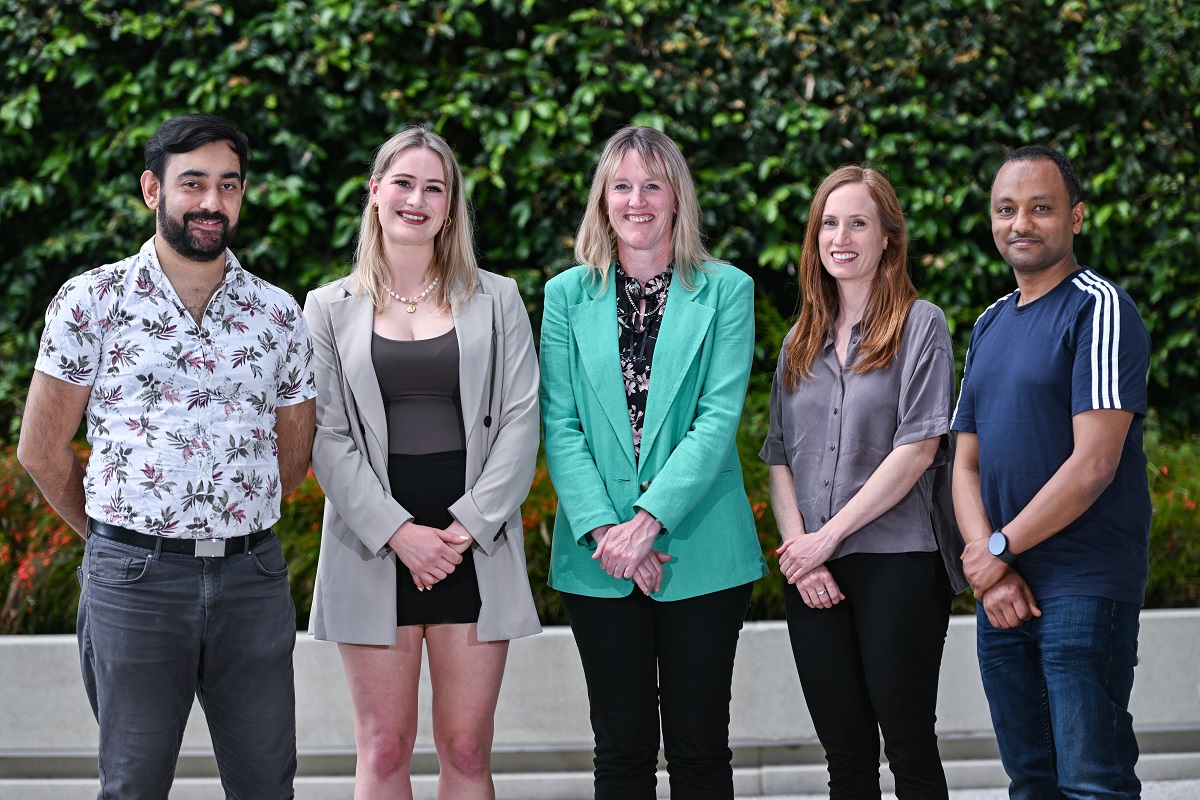
Flinders University is empowering researchers on their journey to create a better world by providing seed funding grants to address community challenges with new knowledge.
The 2024 Early Career Research Seed Funding grants, supported by donations from alumni, staff and community members, will provide six emerging researchers with up to $10,000 each to tackle community challenges such as cancer care, eating disorders, and environmental impacts.
The University's program provides an opportunity for researchers to facilitate their own research, mature their leadership capabilities and build their reputation both as a supervisor and a researcher.
This year's recipients, Dr Muktar Ahmed, Dr Victoria Bridgland, Dr Melissa de Vel-Palumbo, Dr Jarrad Kowlessar, Dr Jake Robinson and Dr Jolene Thomas are looking forward to developing their brave new research with the support of the seed funding.

Deputy Vice-Chancellor (Research) Professor Raymond Chan congratulated the successful recipients and said it was heartening to see the future of research at Flinders was in capable hands.
"It is always a challenge to select research projects from the large pool of deserving early career researchers but the number of high-quality applications we receive every year speaks to the quality of research undertaken at Flinders University.
"Across the University, our researchers consistently rise to the challenge of finding new ways of approaching real world problems and finding solutions for the betterment of our community, and I have no doubt these grant recipients will go on to make a real impact."
The 2024 Flinders University Early Career Research Seed Funding recipients include:
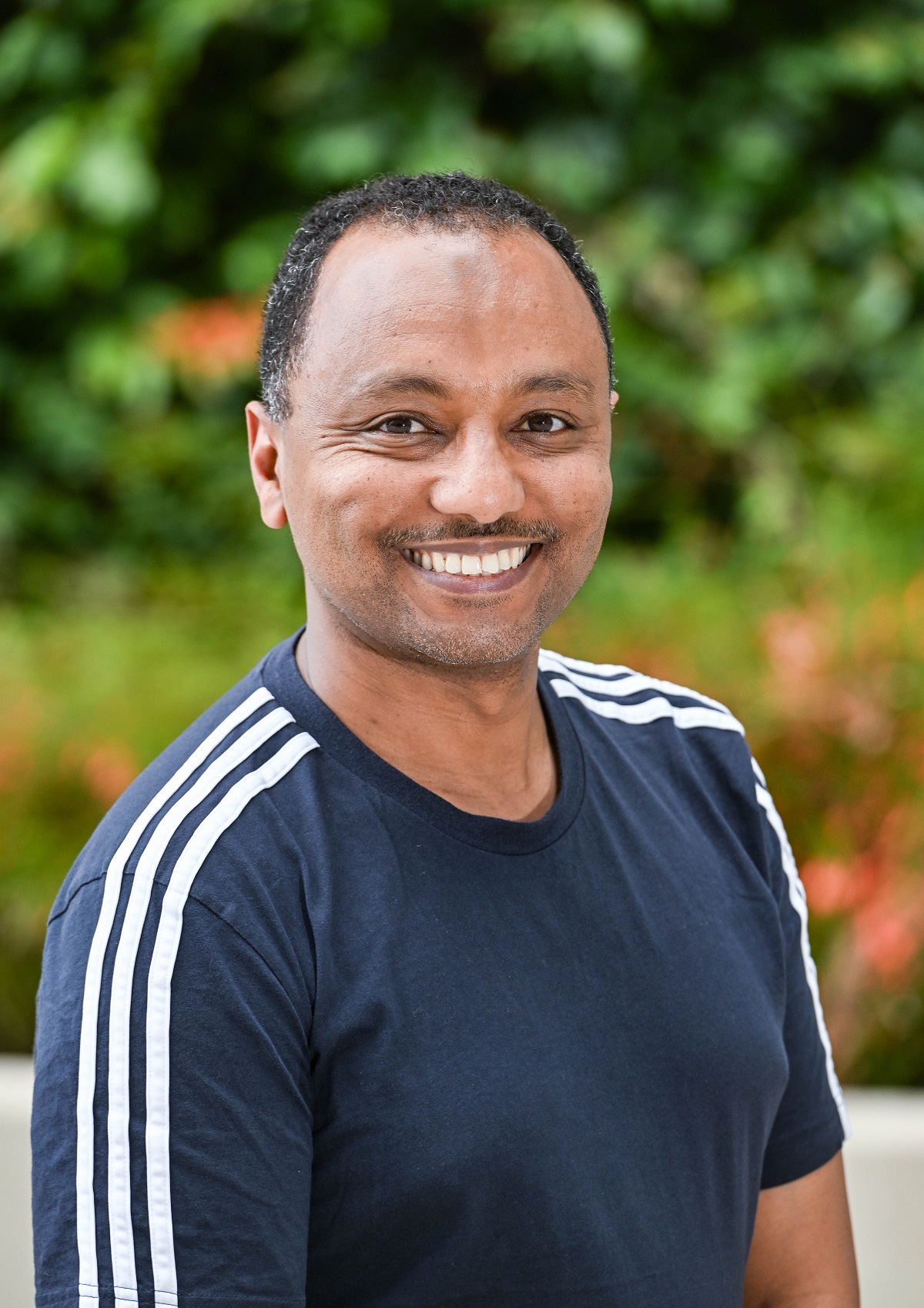
Dr Muktar Ahmed, College of Medicine and Public Health
Mental health impact on spouses of patients with colorectal cancer: addressing the hidden burden in cancer care.
"A cancer diagnosis significantly impacts not only patients but also their spouses or partners. While caregiving can strengthen bonds, it brings substantial responsibilities and stress, increasing the risk of mental health issues like depression and anxiety. Integrating mental health support into the overall care plan for cancer patients and those who care for them remains an underexplored area. To address this, my project will assess anxiety and depression levels among approximately 200 spouses/partners of colorectal cancer survivors. The survey will capture a comprehensive picture of the mental health challenges faced by carers, guiding the development of targeted support strategies."
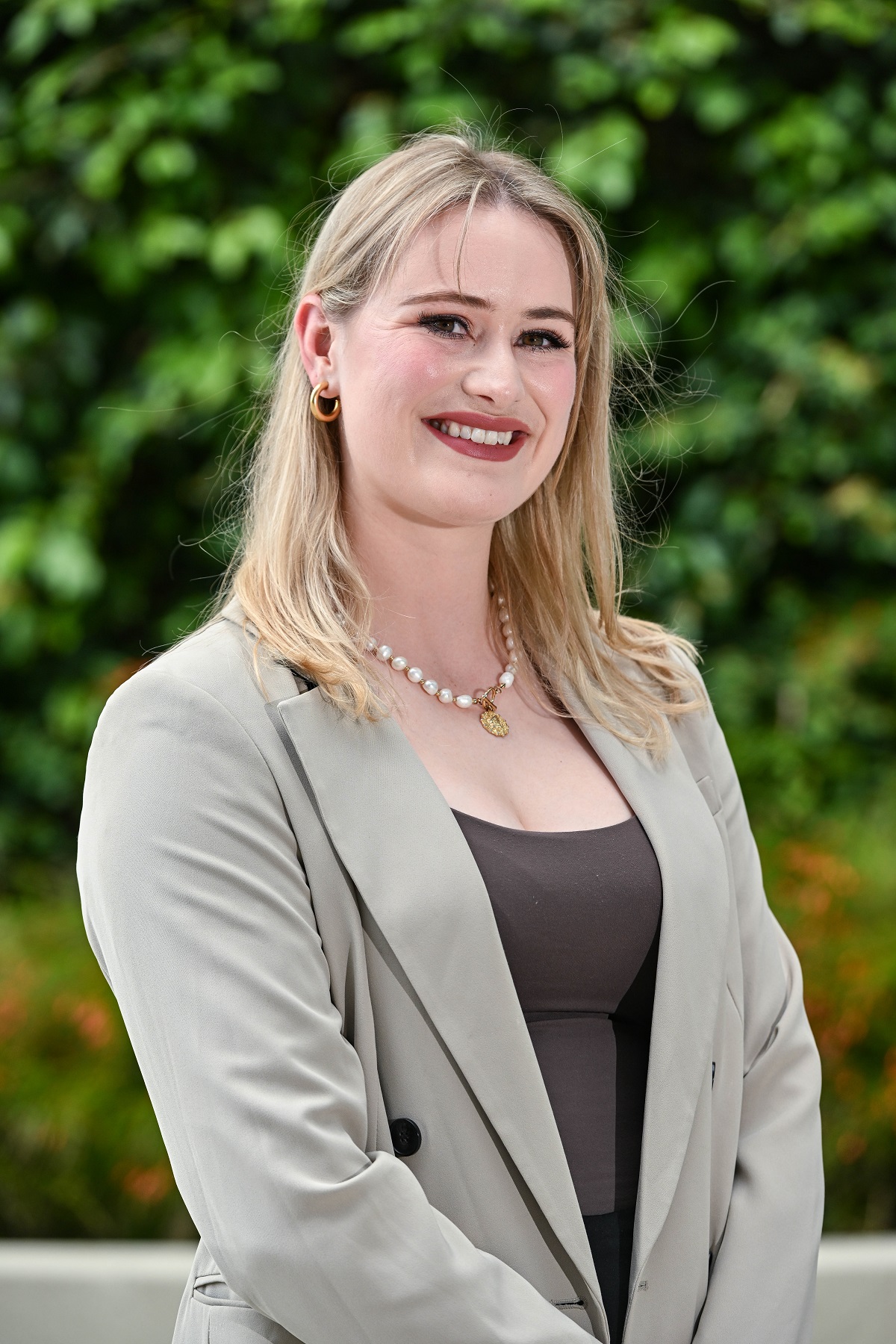
Dr Victoria Bridgland, College of Education, Psychology and Social Work
Evaluating trigger warnings in people with disordered eating.
"Disordered eating and body image related content is one of the most prominent types of content accompanied by a trigger warning. Trigger warnings in the media seek to help people by either mentally preparing them to face, or to completely avoid, potentially triggering content. Despite extensive use of trigger warnings for disordered eating content no published research has examined the effectiveness. This study will investigate the emotional and behavioural effects of trigger warnings around disordered eating content, and if trigger warnings can be improved using emotion regulation techniques."

Dr Melissa de Vel-Palumbo, College of Business, Government and Law
Probation practice and outcomes: A comparative pilot study of probation officers in Australia and Germany.
"The number of people on parole and probation supervision has steadily increased in recent years, but current practices are largely ineffective in reducing reoffending. With the costs of crime in Australia already exceeding $19 billion per year, it is becoming increasingly important to identify effective ways to rehabilitate people in the community. In response, there has been a shift in recent correctional thinking towards desistance-based rehabilitative practices. However, little is known about how widespread desistance-oriented practices are, whether there is systematic variation in practice between jurisdictions, and whether these practices actually influence correctional outcomes. This project will explore probation officers' practices across two jurisdictions: Australia and Germany."
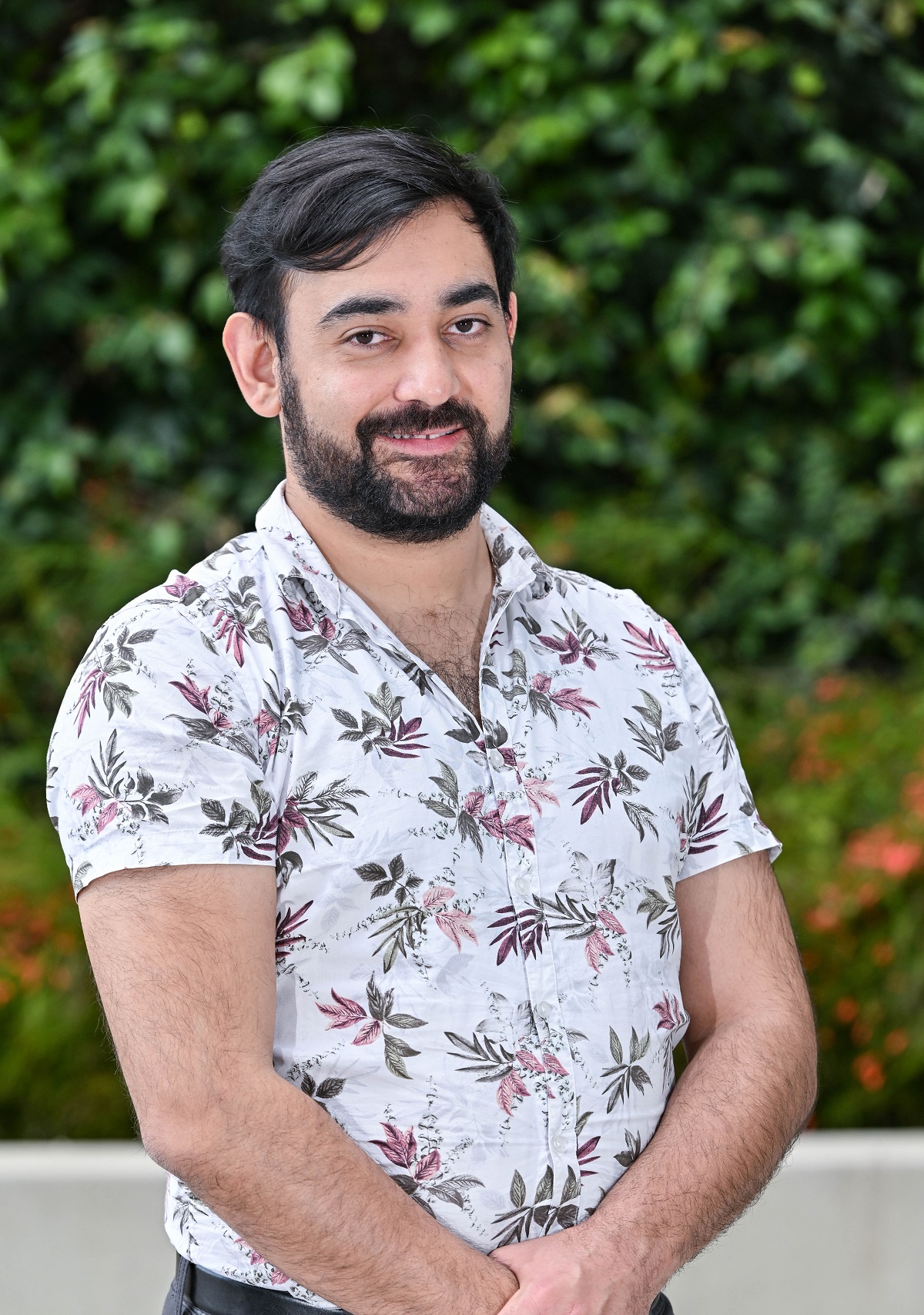
Dr Jarrad Kowlessar, College of Humanities, Arts and Social Sciences
Mapping Large Scale Archaeological Landscapes in Central Australia Using Deep Learning.
"Landscape archaeology seeks to map distinct landforms of archaeological significance. This is challenging in Australia due to the scale of the country's vast landscapes. This project seeks to adapt broad approaches to machine learning image analysis and apply them in the Simpson, Strzelecki and Stuart Stony Deserts in Central Australia. The project will develop an algorithm which can be deployed across these vast geographic areas using freely available remotely sensed data to achieve mapping of key archaeological landscape targets including dune fields, dryland lakes, gypsum deposits as well as land systems with unique vegetation and geological configurations."
Dr Jake M. Robinson, College of Science and Engineering
Advancing acoustic technology to enhance ecosystem restoration.
"Recent research shows that acoustic technology can be used to stimulate the activity of plant growth-promoting microbiota, with promising potential for applications in agriculture and ecosystem restoration settings. This project will advance tools and research capacity in acoustic ecology to help restore soil biodiversity and promote plant health via sonic stimulation, as well as improve soil biodiversity monitoring. These interventions could help reverse land degradation and enhance regenerative agriculture."
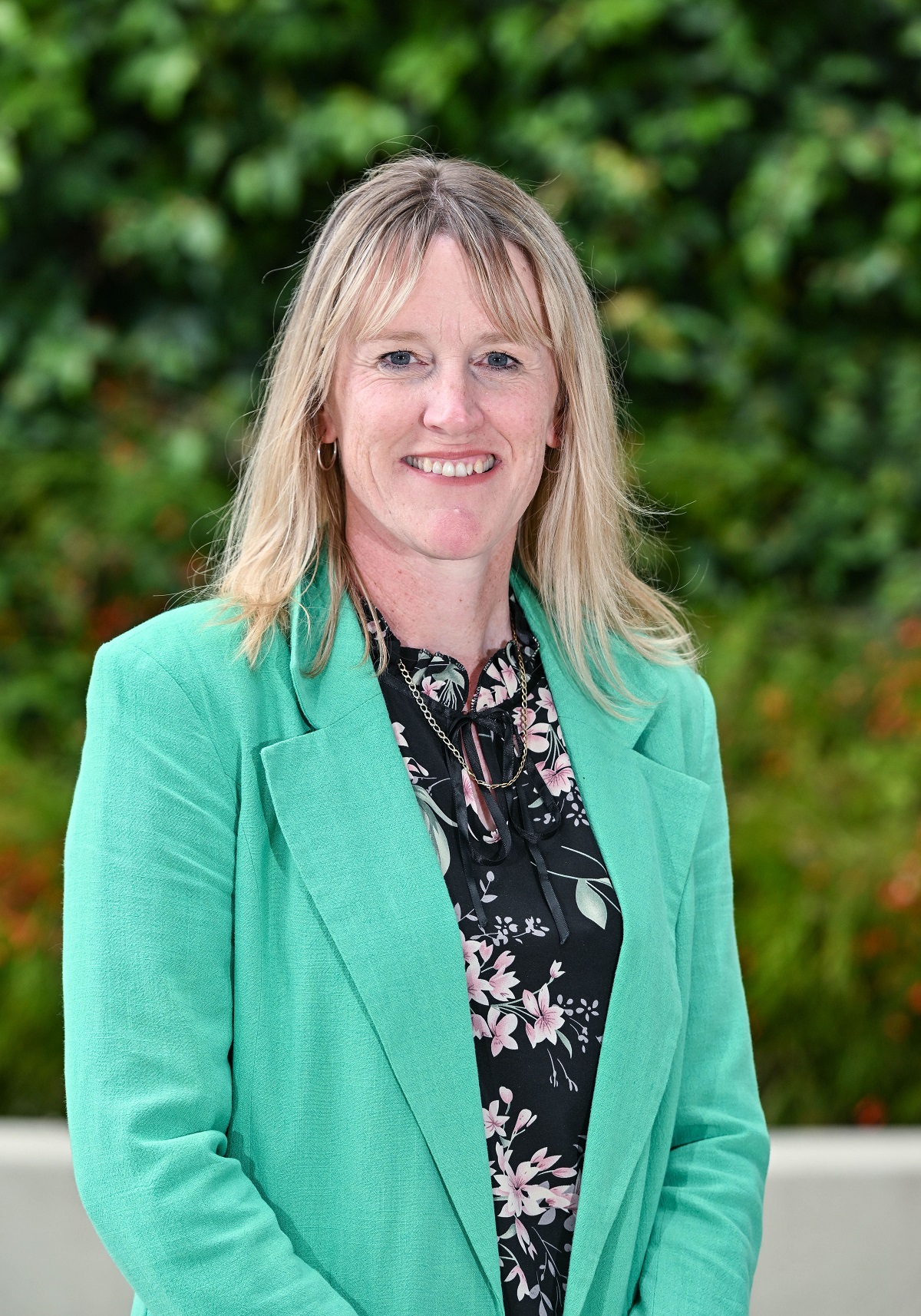
Dr Jolene Thomas, College of Nursing and Health Sciences
Understanding the nutritional health of Home Care Package recipients, and the impact on quality of life.
"To care appropriately for our rapidly growing population of older adults receiving care in their own home it is imperative that their nutritional health is investigated, and steps are taken to manage risks to overall health and independence. However, there has been very little nutrition research focussing on recipients of home care packages. With a vision to maximise the nutritional health of older Australians and to extend their years of independence in their own home, an exploratory study will be carried out on the nutritional health and Quality of Life of 30 Home Care Package recipients in metropolitan Adelaide. Data will be collected via home visits, including demographics, anthropometry, nutritional status, food frequency and Quality of Life questionnaires."






